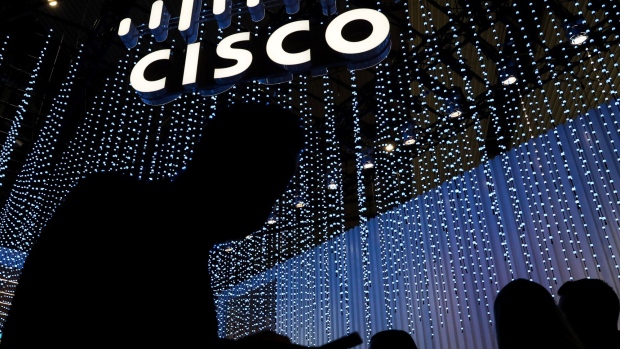Jul 10, 2023
Cisco Must Face Suit Linking Its Tech to Chinese Human Rights Abuse, Court Rules
, Bloomberg News

(Bloomberg) -- Cisco Systems Inc. can be sued over allegations the company used its technology to help Chinese authorities perpetrate religious persecution of Falun Gong followers, an appeals court said in a ruling that threatens to exacerbate tensions between the US and China.
Overturning a decision from nine years ago by a lower-court judge who dismissed the case, a panel of the US 9th Circuit Court of Appeals said some claims can proceed. The lawsuit has been on hold while the US Supreme Court had considered other cases that may have impacted this one.
The appeals court ruling stems from a suit originally filed in San Jose, California, in 2011 on behalf of hundreds of unidentified Chinese and U.S. citizens who claimed that Cisco collaborated with the Chinese Communist Party to monitor and intercept communications of Falun Gong adherents to make it easier to arrest, detain and torture them.
The appeals court desision to let the suit proceed comes at a particularly fraught time with frictions between Washington and Beijing tumbling into a tit-for-tat trade war and both sides restricting exports critical to advanced technologies. Circuit Court Judge Morgan Christen cited the tensions in her partial dissent to the ruling.
“Finding of liability in this case would necessarily require a showing that the Chinese Communist Party and Ministry of Public Security violated international law with respect to the Chinese-national plaintiffs,” Christen wrote. “Such a finding could have serious ramifications for Sino-American relations, fraught as they already are.”
She said federal courts weren’t designed to play a leading role in US international affairs.
Cisco didn’t immediately respond to an email seeking comment on the ruling.
Read More: Cisco Wins Dismissal of Suit Alleging Human Rights Abuses
US District Judge Edward Davila ruled in 2014 that while there were plausible claims that Cicso custom-designed software for China was used to track Falun Gong believers, he wasn’t convinced the company could be sued in the US for alleged abuses committed overseas.
The appeals court majority said corporations may be held liable under the Alien Tort Statute.
“Aiding and abetting liability is a norm of customary international law with sufficient definition and universality” under the statute, according to the opinion. The Falun Gong believers properly alleged that Cisco’s assistance to the Chinese government had “substantial effects” of its violations of international law, and that Cisco “knowingly provided” the help.
The case is Doe v. Cisco Sytesms Inc., 15-16909, US Court of Appeals for the Ninth Circuit (San Francisco).
©2023 Bloomberg L.P.





